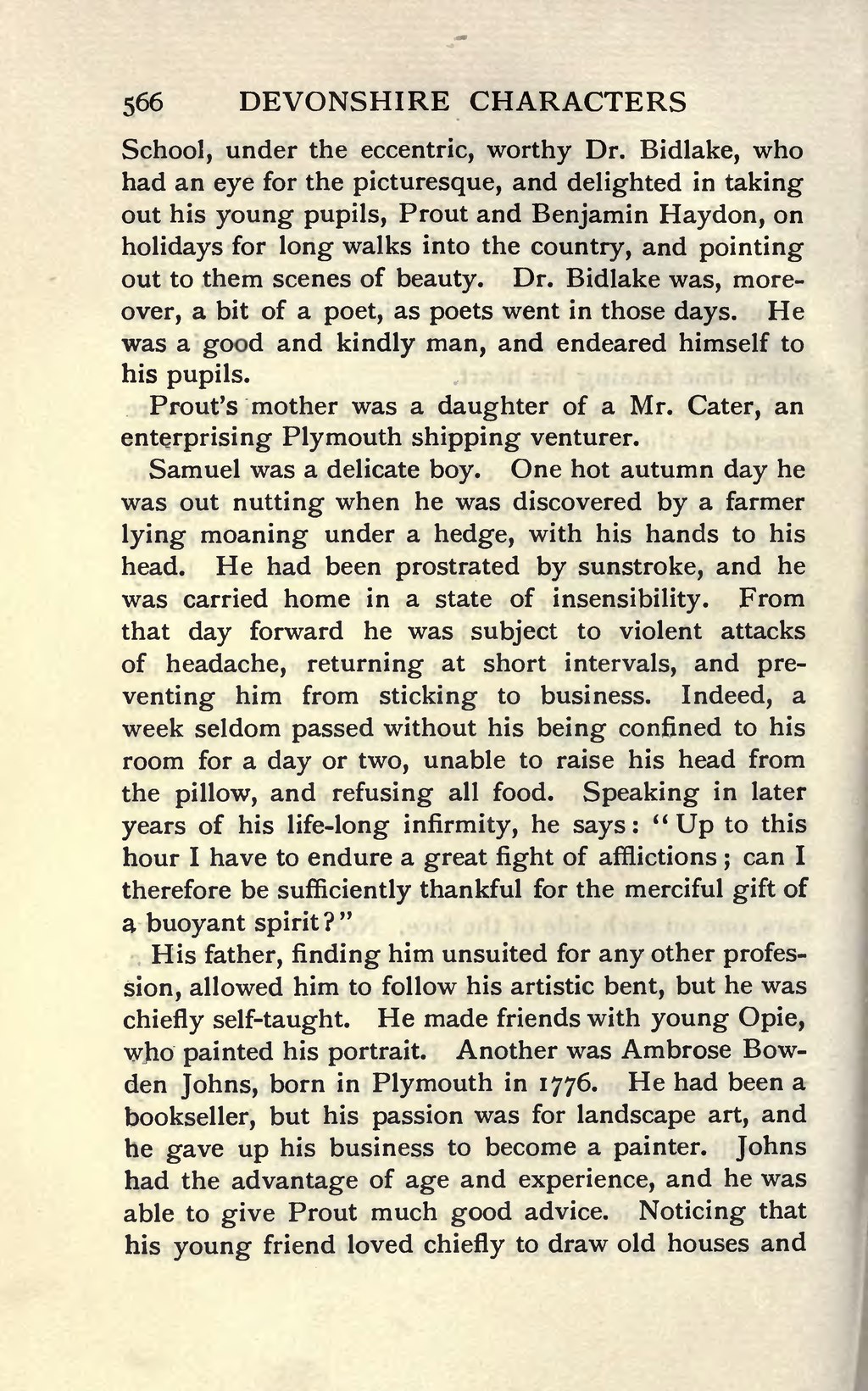School, under the eccentric, worthy Dr. Bidlake, who had an eye for the picturesque, and delighted in taking out his young pupils, Prout and Benjamin Haydon, on holidays for long walks into the country, and pointing out to them scenes of beauty. Dr. Bidlake was, moreover, a bit of a poet, as poets went in those days. He was a good and kindly man, and endeared himself to his pupils.
Prout's mother was a daughter of a Mr. Cater, an enterprising Plymouth shipping venturer.
Samuel was a delicate boy. One hot autumn day he was out nutting when he was discovered by a farmer lying moaning under a hedge, with his hands to his head. He had been prostrated by sunstroke, and he was carried home in a state of insensibility. From that day forward he was subject to violent attacks of headache, returning at short intervals, and preventing him from sticking to business. Indeed, a week seldom passed without his being confined to his room for a day or two, unable to raise his head from the pillow, and refusing all food. Speaking in later years of his life-long infirmity, he says: "Up to this hour I have to endure a great fight of afflictions; can I therefore be sufficiently thankful for the merciful gift of a buoyant spirit?"
His father, finding him unsuited for any other profession, allowed him to follow his artistic bent, but he was chiefly self-taught. He made friends with young Opie, who painted his portrait. Another was Ambrose Bowden Johns, born in Plymouth in 1776. He had been a bookseller, but his passion was for landscape art, and he gave up his business to become a painter. Johns had the advantage of age and experience, and he was able to give Prout much good advice. Noticing that his young friend loved chiefly to draw old houses and

